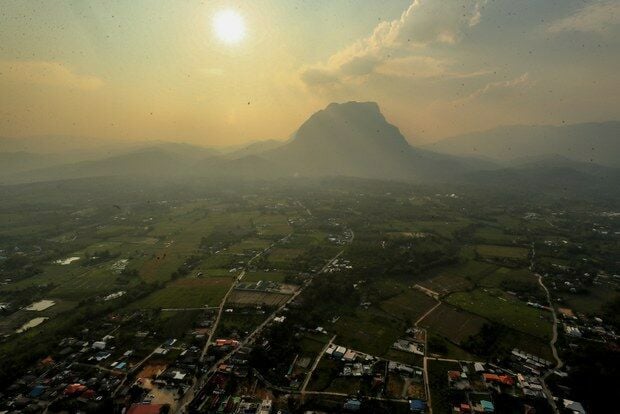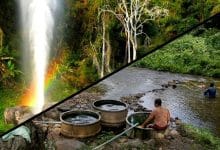Thai smog crisis prompts call for global shift to plant-based diets

Northern Thailand is grappling with a persistent smog problem, typically attributed to crop waste burning, deforestation for mushroom harvesting and vehicle emissions, prompting calls for a global shift to plant-based diets. However, an emerging consensus among scientists and environmental activists suggests a deeper, global solution is required to avert a climate disaster.
The crux of the issue, they argue, lies in the conversion of almost half of the world’s habitable land into animal farmland.
The cycle of destruction and pollution starts with deforestation and crop planting in northern Thailand and neighbouring areas in Myanmar and Laos. The forests are cut down and replaced with cornfields, which feed chickens and pigs. This process has a fourfold negative impact on air pollution and climate change.
Firstly, the trees that absorb greenhouse gases are lost. Secondly, forest fires release tons of greenhouse gases. Thirdly, corn cultivation involves activities that increase fossil fuel consumption and emit nitrous oxide, a potent pollutant. Lastly, many farmers still burn their crop waste, said environmental activist Michael Shafer.
“Corn is really the issue here in Thailand. Animals eat corn… And more than half of this corn ends up being grown in what is technically legally protected forest areas.
“Deforestation to plant corn is just the last part of a greenhouse gas emission process. Anti-deforestation campaigner Bunnaroth Buaklee highlights the significant decline of national forest reserves.”
Forest destruction
Shafer notes that despite being designated as forest reserves, many areas have lost their forest conditions. He also mentions the severe forest destruction in Laos and Myanmar’s Shan State.
The global impact of this issue is staggering. Since 1700, the percentage of forests and grasslands cleared for agriculture has risen from 9% to 46% today. This land is mostly used for livestock grazing and crop growth, such as corn and soy to feed pigs and chickens. The United Nations attributes more climate change to the global meat industry than to all forms of transport combined.
Chiang Mai-based entrepreneur Smith Taweelerdniti, motivated by the lack of competitively priced alternatives to meat, launched a meat-free brand called Let’s Plant Meat. He believes that offering people in Thailand and Asia a viable alternative to animal meat can help reduce the environmental impact. Other meat alternative brands, such as CP Foods’ Meat Zero and Thai Union’s OMG Meat, are also making strides in the market.
For Taweelerdniti and many experts, the long-term solution lies in shifting from land-intensive, polluting meat production towards a plant-based diet. This shift could allow global reforestation and the regeneration of vast tracts of land damaged by animal agriculture, said Taweelerdniti.
“They don’t know that the food they eat can also cause harm to the planet. Our diet can help the world.”
Latest Thailand News
Follow The Thaiger on Google News:


























